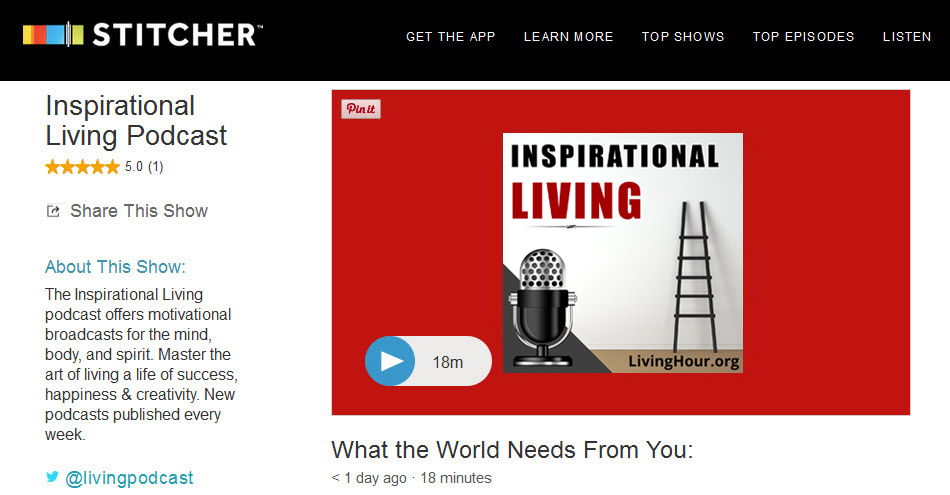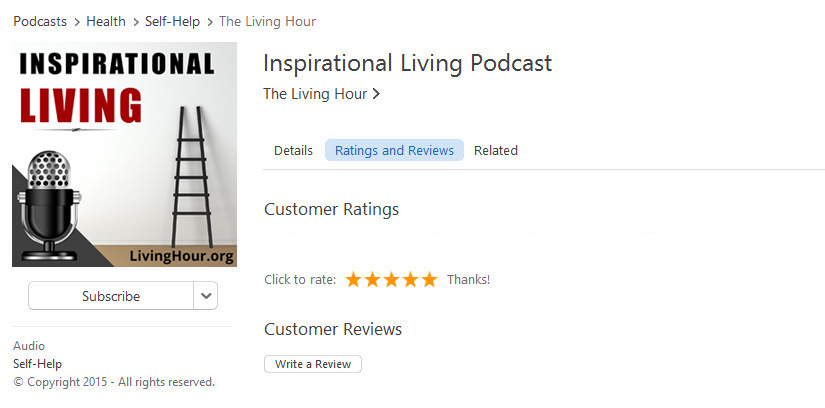01 Jul The Science of Eternal Life | Jean Finot | Inspirational Podcast
Welcome to the Inspirational Living podcast, brought to you in part by Book of Zen, makers of inspirational fashion and gift ideas. Visit them online at BookofZen.com. Today’s podcast has been edited and adapted from The Philosophy of Long Life by Jean Finot, published in 1908.
The world is led, not only by ideas, but above all by words. It is sometimes only necessary to give a thing a pleasant or a repulsive name, and our mind will be at once penetrated with the significance thus lent to it. The word becomes idea, thought, and conviction—the covering of the object thus identifying itself with the object itself.
If the vanishing of our body (instead of being called death or disappearance) had been conceived as a resurrection, a sort of return to the immortality of nature, it would rather evoke a delicious shiver at the mystery of the afterlife, instead of the horrors of nothingness.
It is by will that we repeat certain words, and it is these words which in the course of time become our faith. It is this faith in its turn which impresses our mind, and makes its conceptions hereditary and innate. Faith is born of words, and acts are born of faith.
Not only do ideas change to power and to acts, but acts, by their repetition, are transformed in their turn to power and to ideas. The false direction given to our thoughts of death has falsified its significance and its end.
Death is perhaps not so desperate a condition as we think it. We have distorted its meaning and thus it escapes our comprehension. The fear with which it inspires us may be compared to the fear of poverty. Those who look at its good side easily accommodate themselves to it. Others, and these are far more numerous, fear it like death itself. All depends on the angle at which we place ourselves to observe it.
Francis Bacon observed that there is no passion in the heart of men and women so weak that it cannot surmount the fear of death. The desire of vengeance triumphs over death, love scorns it, honor breathes it, despair flies to it, fear advances it, faith embraces it with a sort of joy.
The great poets, who with their supreme intuition have succeeded in foreseeing the science of tomorrow, have found in the picture of the infinite sorrows and limitless despair which death means to the average individual, smiling visions of hope and joy. Virgil says with irony: “Is it such a great misfortune to lose one’s life?” To Lucretius death alone comes to the help of nature in creating life.
If things are ordinarily only valued for their rarity, life (as the great object of our efforts, of our enthusiasm, and our desires) being more frequent, durable, and inseparable from the organized being, loses by that very fact much of the price of affection which we attach to it. Scattered with an unparalleled prodigality, it is universal in the world.
Considered impartially in the light of modern science, the phenomenon of death offers us much unforeseen consolation. Death is our companion of every day and every minute, and its manifestations are as permanent as those of life. When we remember that we are dying piecemeal at every moment, we cease to understand the fear with which the so-called final deliverance inspires in us.
We know that our body is composed of an innumerable quantity of cells, which each live its own life and keep their individuality. Guided by the principle of the division of labor, each cell fulfils its functions and contributes to the prosperity of the whole. The cells are the bearers of hereditary properties, the source whence are born the germs of new tissues, and the motors of the vital activity of our organism.
Now these cells, the infinite number of little beings of which our physiological ego is composed, are born, evolve, and die. The continued, permanent, and inextricable death of these cells thus forms the condition of our life. Without the death of the cells of the salivary glands there would be no saliva, a condition inseparable from digestion, and, consequently, from life itself. With the death of a cell, however, dies a portion of ourselves.
The full podcast transcript for this episode is now exclusively available to our patrons. Become our patron for as little as 3$ a month to gain access to all of our podcast transcripts and the exclusive series Our Sunday Talks. Learn more at: https://www.patreon.com/inspirationalpodcasts.
Subscribe to the Inspirational Living Podcast at iTunes & Stitcher
All transcripts from our inspirational podcasts are edited adaptations of the original work and copyrighted by LivingHour.org. For reproduction permission please contact us via our contact page.


